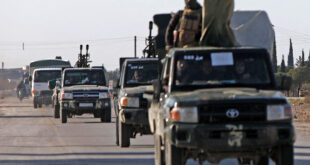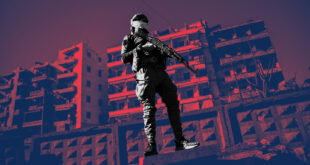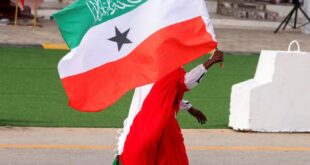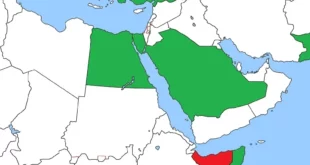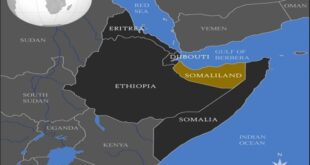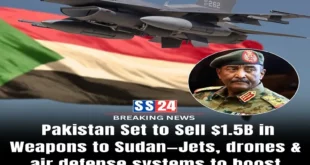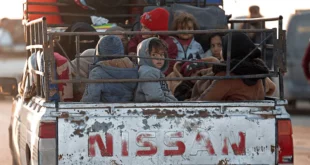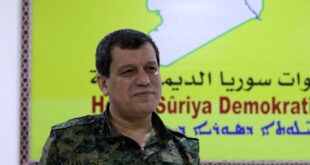In the wake of intense fighting between the Kurdish-led Syrian Democratic Forces (SDF) and Syrian government forces, SDF commander Mazloum Abdi ordered the withdrawal of his personnel from contested areas of Aleppo province. “Based on invitations from friendly countries and mediators, and in demonstration of our good faith in completing …
Read More »Damascus Poised To Attack Kurdish-Held Towns in Northern Syria
Latest Developments Syrian Troops Ready Offensive on Kurdish-Held Areas: Syrian government troops are preparing to launch an offensive against Kurdish-held towns in the north and east of the country after clashes broke out a week earlier in Aleppo. The Syrian authorities have reportedly decided on a limited operation to pressure …
Read More »After Aleppo: What SDF-Damascus clashes mean for Syria’s future
Aleppo, Syria – Syria is teetering on the brink of a return to full-scale war, as bloodshed returned to Aleppo’s streets following the Syrian government’s offensive to seize the Kurdish-majority neighbourhoods of Achrafieh and Sheikh Maqsoud from the Kurdish-dominated Syrian Democratic Forces (SDF). Fighting erupted last Tuesday and continued for …
Read More »Recognizing Somaliland: Israel’s Return to the Red Sea
Israel’s agreement with Somaliland will boost its security in the Red Sea Basin and may encourage the United States and other countries to follow suit, though political obstacles and complications abound. The surprise announcement on December 26 that Israel will be the first country to grant Somaliland full recognition has …
Read More »The Nascent “Islamic NATO” Might Soon Set Its Sights On Somaliland
The Somali Defense Minister’s request for Saudi Arabia to replicate its South Yemeni campaign in Somaliland coupled with reports about those two’s and Egypt’s impending alliance that would thus de facto include their Eritrean ally strongly suggest that something big might soon be afoot. Reports have recently circulated about three …
Read More »Five Reasons For The World To Finally Recognize Somaliland’s 1991 Redeclaration Of Independence
Doing so will bring about long-overdue historical justice, advance shared values and security interests, and promote regional stability and development. Somalian-born congresswoman Ilhan Omar’s de facto admission that she’s an undeclared foreign agent, which she made last month while ranting against the Ethiopia-Somaliland Memorandum of Understanding (MOU), catapulted Somaliland to …
Read More »Pakistan’s Reportedly Planned Arms Deal With Sudan Presages Problems For The UAE In Africa
Pakistan is functioning as the force multiplier in the Saudi-Turkish-Egyptian proxy campaign against the UAE in Africa that it’s finally participating in after sitting on the sidelines for so long. Reuters recently reported that “Pakistan nears $1.5 billion deal to supply weapons, jets to Sudan”, which follows last month’s report …
Read More »Iran Update, January 15, 2026
Toplines The Iranian regime’s extreme securitization of society and brutal crackdown on protests appear to have suppressed the protest movement for now. The regime’s widespread mobilization of security forces is unsustainable, however, which makes it possible that protests could resume. The regime has also not addressed and likely will not …
Read More »Syria’s Al Shara recognises Kurdish citizenship, language and Nowruz festival in presidential decree
Syria’s Kurdish authorities say the move does not guarantee people’s rights Syria’s President Ahmad Al Shara on Friday issued a decree affirming the rights of Kurdish Syrians, formally recognising their language and restoring citizenship to the country’s largest minority community. “I have the honour to issue a decree especially for …
Read More »The SDF’s Approach to Integration Talks in Syria and the Risk of Expanded Conflict
Recent clashes between Damascus and the Kurdish forces in Aleppo highlight the risk that stalling integration talks may trigger broader violence. Since its signing on March 10, no tangible progress has been made on the eight-point agreement between the Syrian Democratic Forces (SDF) and the Syrian Interim Government to facilitate …
Read More » Eurasia Press & News
Eurasia Press & News

